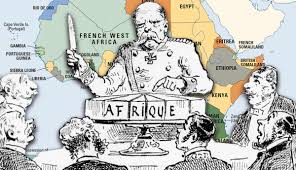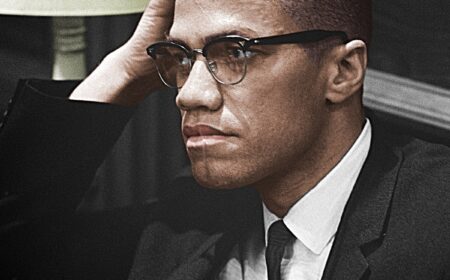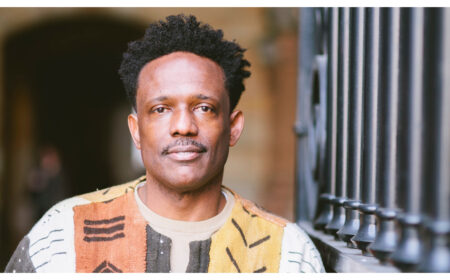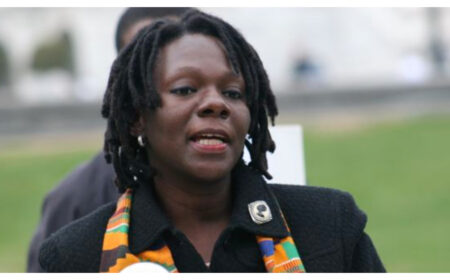WE MUST NEVER FORGET!!!
In a country where our ancestors were brought here as kidnapped captives, it’s important to know the stories that show the strength, courage, spirituality, of our forefathers. We live in a multimedia driven world, and images are important. That’s why from its early inception to now, images of Black people has always been negative, and very limited in the amount of stories or non-fictional accounts that show that show Black people taking control of their situations, or rebellions. A recent example is “The Birth of a Nation”, the story centering around the life of Nat Turner, and the story of the Haitian Revolution and the lives of Jean-Jacques Dessalines, Dutty Boukman, Toussaint Louverture, the project that Danny Glover has been working on and finding difficult. These and other stories need to be told and discussed, by our adults, then with our children. Stories of Black men and women fighting for FREEDOM, not equality, there’s a difference. Read and share the story below, and leave your comments.
WE MUST NEVER FORGET!!!
MILLIKEN’S BEND JUNE 7th 1863
LINCOLN’S PROCLAMATION NEVER FREED ANYONE, OUR ANCESTOR’S ACTED AGAINST WHITE SOUTHERNERS TO SECURE THEIR OWN FREEDOM!
One of the fiercest battles of the Civil War was fought in Milliken’s Bend, Louisiana between Confederate troops and black regiments of the Union Army. Most of the black infantry had minimal training, were outnumbered and ill-equipped. Nevertheless, in close hand-to-hand combat, they defeating Confederate soldiers at Milliken’s Bend, in the critical battle for Vicksburg.
In most cases, these Black troops were allowed only two to three weeks of military training before being thrown into battle against the war-tested Confederate veterans and their vicious and spiteful commanders. Black men faced a peril unknown to their white soldier’s on the Union side. Slaves one day, soldiers fighting against their former masters the next, these black men excited the wrath and contempt of the vicious Confederate generals like Ku Klux Klan founder Nathan Bedford Forrest and Pierre Beauregard, the man who started the war at Fort Sumter, South Carolina on April 15, 1861. Black men falling into the hands of such generals were either put to death immediately or returned to slavery, rather than being accorded the status of prisoners of war.
The men who fought at Milliken’s Bend were literally fresh off the plantation, and none had been in the service for more than a month when the battle occurred. Some had just entered the service days before, and had not even been issued weapons. A significant factor in the battle was the lack of training of Union troops. Even the white officers were learning their new duties. Even without the pressure of a Confederate attack, the Union forces were undermanned and in disarray.
The fact that these men managed to fight at all is something of a small miracle. That they fought well, with minimal training and poor weaponry – and in fact, earned praise from the Confederate commander – makes their attempt to stand at Milliken’s Bend significant.
The Battle:
Confederate Lt. Gen. John C. Pemberton and his army were besieged in Vicksburg, Mississippi, by Union commander Maj. Gen. Ulysses S. Grant and the Army of the Tennessee.
In an effort to cut Grant’s supply line and relieve the city, the Confederates attacked the Union supply area at Milliken’s Bend up the Mississippi. The Milliken’s Bend area, 15 miles to the northwest of Vicksburg, had until recently served as a staging area for Grant’s Vicksburg Campaign. It was a site of supply depots and hospitals, many of which were manned and guarded by black soldiers, some of whom were recently recruited men who were freed slaves. At Milliken’s Bend were 1410 soldiers, only 160 of them white (i.e., the 23rd Iowa regiment). The rest were three newly recruited Black Regiments—The First Mississippi (African Descent) and the Ninth and Eleventh Louisiana (Corps d Afrique, or African Corps). They were attacked here on June 7, about 8 o’clock in the morning, outnumbered by a brigade of Confederate troops, about 2,500 in number. In one of the bloodiest battles of the war, African American troops engaged attacking Confederates in fierce hand-to-hand combat, fighting with bayonets, fists, and rifle butts, or firing their weapons at extremely close range.
Brigadier General Henry McCullough, who commanded the Confederate forces, later noted that his
“charge was resisted by the negro portion of the enemy’s force with considerable obstinacy, while the white or true Yankee position ran like whipped curs almost as soon as the charge was ordered.”
The African American troops paid dearly for their bravery. Heaviest hit was the 9th Louisiana Infantry. Almost 45 percent of the unit’s men were killed or mortally wounded — the highest percentage of a regiment killed in a single battle in the entire war. Finally, with their backs to the Mississippi, they received the support of a Navy gunboat, and their line held.
Absent from the schoolbooks and television miniseries about the Civil War, however, are those truly great battles fought and won by the Black volunteers in Mississippi and Louisiana and elsewhere in the South. In most cases, these Black troops were allowed only two to three weeks of military training before being thrown into battle against the war-tested Confederate veterans and their vicious and spiteful commanders. Today Milliken’s Bend lies largely forgotten, Neither Ulysses Grant nor William Sherman gave Milliken’s Bend much attention in their autobiographies. Grant gave perfunctory acknowledgement to the black troops in saying that this was the first real test of black troops in combat. And that they had passed the test quite admirably. Yet, only six-months before Grant’s crossing of the River south of Vicksburg, near Port Gibson, Milliken’s Bend had served as his main base of operations. As late as January 20,1863, he had tried to launch an assault against Vicksburg from Milliken’s Bend and Young’s Point, 11 miles to the south, but his forces were repulsed savagely at Chickasaw Bayou north of Vicksburg.
A letter from Captain M. M. Miller at MILLIKEN’S BEND to his aunt stated:
I never felt more grieved and sick at heart than when I saw how my brave soldiers had been slaughtered, one with six wounds, all the rest with two or three, none less than two wounds. Two of my colored sergeants were killed, both brave, noble men; always prompt, vigilant, and ready for the fray. I never more wish to hear the expression, “The niggers wont fight.” Come with me 100 yards from where I sit and I can show you the wounds that cover the bodies of brave, loyal, and patriotic soldiers as ever drew bead on a rebel.
‘The enemy charged us so close that we fought with our bayonets hand to hand. I have six broken bayonets to show how bravely my men fought. The Twenty-third Iowa joined my company on the right, and I declare truthfully that they had all fled before our regiment fell back, as we were all compelled to do.
‘Under command of Colonel Page I led the Ninth and Eleventh Louisiana when the rifle-pits were retaken and held by our troops, our two regiments doing the work.
‘I narrowly escaped death once. A rebel took deliberate [aim] at me with both barrels of his gun, and the bullets passed so close to me that the powder that remained on them burned my cheek. Three of my men who saw him aim and fire thought that he wounded me each fire. One of them was killed by my side, and he fell on me, covering my clothes with his blood, and before the rebel could fire again I blew his brains out with my gun.
‘It was a horrible fight, the worst I was ever engaged in, not even excepting Shiloh. The enemy cried, “No quarters,” but some of them were very glad to take it when made prisoners.
‘Colonel Allen, of the seventeenth Texas, was killed in front of our regiment, and Brigadier General Walker was wounded. We killed about 180 of the enemy. The gun-boat Choctaw did good service shelling them. I stood on the breast-works after we took them, and gave the elevations and direction for the gun-boat by pointing my sword, and they sent a shell right into their midst, which sent them in all directions. Three shells fell there and 62 rebels lay there when the fight was over.
‘My wound is not serious, but troublesome. What few men I have left seem to think much of me because I stood up with them in the fight. I can say for them that I never saw a braver company of men in my life.
‘Not one of them offered to leave his place until ordered to fall back; in fact, very few ever did fall back. I went down to the hospital three miles today to see the wounded. Nine of them were there, two having died of their wounds. A boy I had cooking for me came and begged a gun when the rebels were advancing, and took his place with the company, and when we retook the breast-works I found him badly wounded with one gunshot and two bayonet wounds. A new recruit I had issued a gun to the day before the fight was found dead, with a firm grasp on his gun, the bayonet of which was broken in three pieces So they fought and died defending the cause that we revere. They met death coolly, bravely; not rashly did they expose themselves, but all were steady and obedient to orders.
millikensbend.com
millikensbend.org








Comment (1)
SaraRae
Awesome! I am proud to read this unknown account of my ancestors strength and courage.